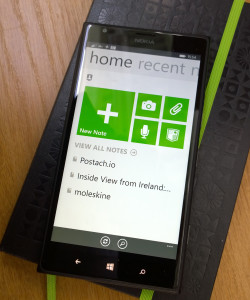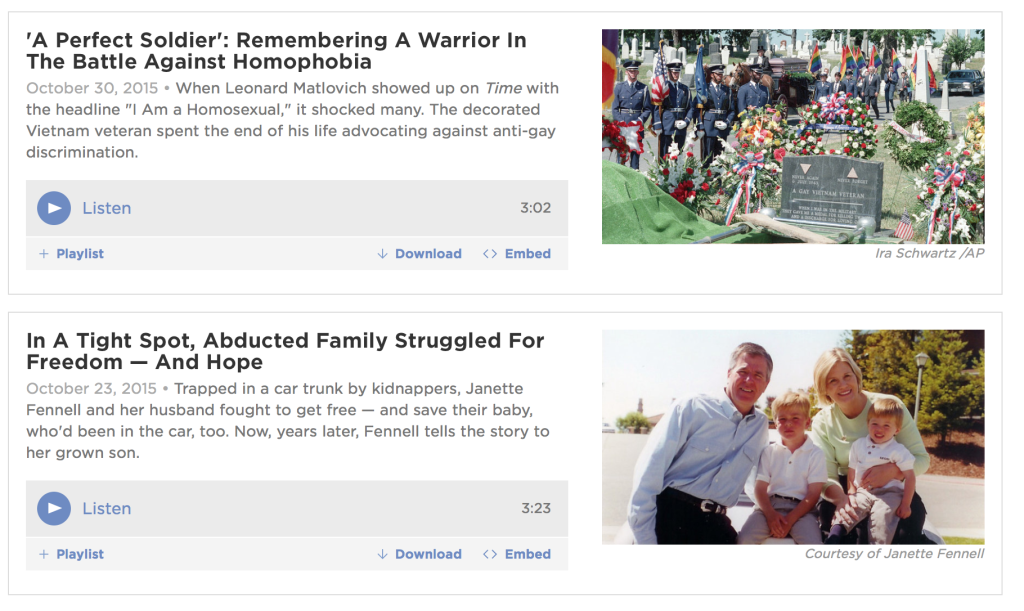English prof gathers oral histories with Evernote
 Professor Steve Braye is a story collector. This semester, he’s gathering oral histories of the Civil Rights Movement with the help of his Global Experience classes. Braye aims to create a publicly available archive of narratives that document the Movement as members of the Elon community—as well as their friends and families—experienced it.
Professor Steve Braye is a story collector. This semester, he’s gathering oral histories of the Civil Rights Movement with the help of his Global Experience classes. Braye aims to create a publicly available archive of narratives that document the Movement as members of the Elon community—as well as their friends and families—experienced it.
The project is tied to this year’s common reading, Why We Can’t Wait, by Martin Luther King, Jr. Dr. King’s book inspired Braye to consider how the Civil Rights Movement influenced the lives of people in the Elon community and their relatives. Using NPR’s StoryCorps as a model, Braye commissioned his students to interview their parents or grandparents about their memories of the Movement, and record these interviews with Evernote. According to Braye, even the few short minutes it takes to recount a small, personal memory can speak volumes about the human experience during this pivotal time in American history.
“I’m gonna guess that you’ve never asked your ancestors about living through [the Civil Rights Movement],” Braye says, “but all of them had an experience with it.” He intends the process of collecting and sharing these stories to make interviewees and listeners alike confront the past in a way that they haven’t before.
Oral histories with Evernote
One of the benefits of this project, Braye says, is that it provides students a chance to connect directly with their ancestors and American history. Therefore, Braye wants his students to record conversations, not monologues. He believes that stories flow more organically when interviewers chat with and question the storyteller.
Students record their interviews using the Audio Notes feature of Evernote, a note-taking, organizing, and archiving app. Basically, anyone equipped with a smartphone can record, save, and send their oral histories as .wav files. “It’s nuts how easy it is [to use Evernote],” Braye says.
Braye plans to collect the recordings on a web page à la StoryCorps, where oral histories are featured with headlines and photos. This page might be found somewhere on the Elon website, or Braye might post it independently. “I really do think that people would listen to [these recordings],” Braye says. It’s just a matter of getting them online.
Project prequel
This is not the first time Braye has assigned his students to record conversations with Evernote. Last spring, Braye taught a GST seminar about returning to Elon after a term abroad. A month into the class, Braye divided his students into small groups and assigned them to interview each other about one memorable experience from their time abroad.
“It was nice to be able to reflect on those stories that were really important to me,” says Jessica Cervini, who took Braye’s seminar after her semester in Copenhagen. She appreciated the opportunity to sit down and think about one story that really stuck out in her mind, as opposed to just “gushing” about studying in Denmark.
Like Braye, Cervini was struck by the diversity of tales her fellow students decided to tell. Some were funny, others serious, some were obvious “wow” moments, others were seemingly innocuous encounters in everyday life that, for one reason or another, had great personal significance for the student.
Project expansion
Braye hopes that this cache of narratives about the Civil Rights Movement will eventually expand to include stories from other Elon students’ relatives, as well as Elon faculty and staff. If the project gets big enough, Braye would like a student (ideally one with an interest in history) to take the reins in the spring.
Image by Flickr user Wundering Moleskine | CC BY

 Follow
Follow

